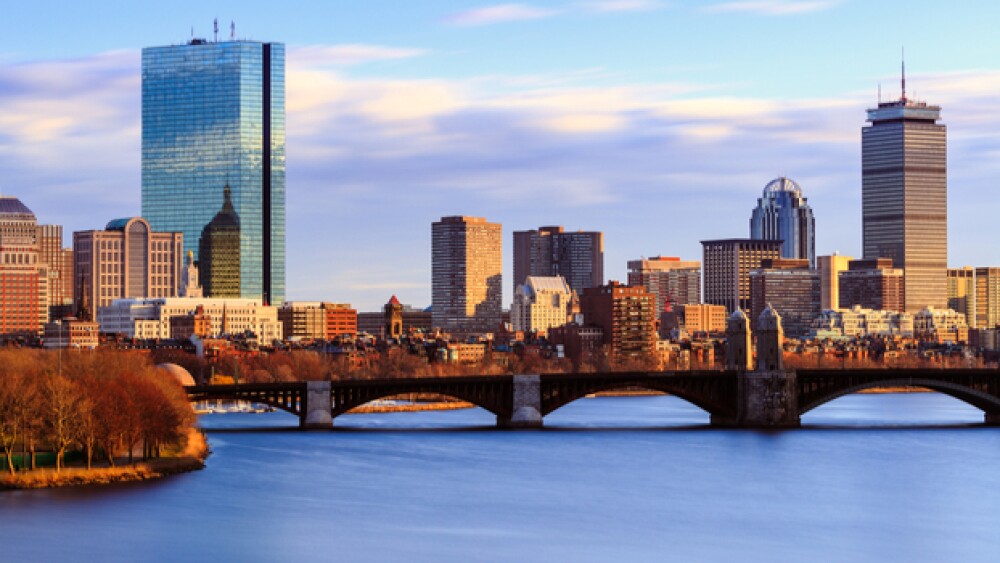Boston and its surrounding communities, particularly the community of Cambridge, have become the hottest biotech hotspot on the East Coast of the United States.
Boston and its surrounding communities, particularly the community of Cambridge, have become the hottest biotech hotspot on the East Coast of the United States. Companies have been investing heavily in real estate and talent in the area, but what’s drawing them to the BioSpace hotbed region Genetown?
According to U.S. News and World Report, Boston comes in at number 27 on its annual “Best Places to Live” ranking. The ranking described Boston as a place that feels like a “small town with all the perks of city life.”
“The metro area features a diverse culinary scene, access to the cultural institutions, and proximity to world-class schools, employers and health care. It is historic but ever-evolving. It is on the cutting edge of medicine and technology, but traditional in its love of pastimes like cheering on hometown heroes at Fenway Park,” the U.S. News and World Report ranking shows.
As BioSpace has noted on multiple occasions, the greater Boston area is home to a growing number of pharma and biotech innovators that are developing multiple life-saving therapeutics to address a wide range of illnesses. The state of Massachusetts is home to more than 1,100 biotechnology companies, academic institutions, disease foundations and other organizations that are involved in the life sciences industry. In April, the Massachusetts Biotechnology Council (MassBio), a life sciences trade group that supports the industry in Massachusetts, reported that life science companies in the Bay State are “hiring like never before.”
The companies in the area are not only taking advantage of the talent pool, but are also doing what they can to ensure that the talent pool grows and flourishes by investing in education. Boston is home to multiple colleges with strong life sciences programs, including Harvard University, the Massachusetts Institute of Technology, Boston College, the University of Massachusetts at Boston and more. Pharma companies certainly see a significance in grooming these future employees. Earlier this year MassBio announced a plan to foster the next generation of life science leaders in the Bay State with Project Onramp. The MassBio project is an internship program that matches talented students from low-income backgrounds with paid internships. David Lucchino, chairman of MassBio and chief executive officer of Frequency Therapeutics, told BioSpace when the program was announced that the basic concept of the internship is straightforward – strengthening the state’s life sciences industry through diversity. While the Massachusetts biopharma and life science industry is thriving, Lucchino noted that there is a gap in hiring, particularly when it comes to women and minorities.
On Wednesday, Project Onramp announced that the 50 students participating in the program had been tapped for their internships, with Vertex, Biogen and AstraZeneca creating about half of the opportunities. The other companies that participated in the internship program include Syros, Jounce, Therapeutics, Kaleido Biosciences and Wave Life Sciences.
“Project Onramp has created a new model for creating opportunities in the thriving biotech industry for high-achieving students who don’t have the personal or family connections that often play a big part in awarding internships,” Lucchino said in a statement today. “The enthusiastic response from leading life sciences companies in Massachusetts has been overwhelming.”
Sanofi and UMass Boston also partnered on a project that aimed to improve STEM education. Jim Burns, head of Sanofi’s North America R&D hub in Boston, told BioSpace at the time that there was a need for promoting STEM education within the public universities in Massachusetts. As the company looked to seed the ground to grow fertile talent, Burns Sanofi needs STEM graduates.
While the companies foster young talent in academic settings, there are also numerous hiring opportunities taking place. Later this month MassBio will host its Life Science Workforce summit that will include discussions on current best practices in hiring for all stages of a life science company’s growth. Topics will discuss the use of temporary and permanent employees, as well as degree requirements, and the latest technological tools used for recruiting. That meeting comes about a month after BioSpace held its own bi-annual Talent Connect event in Boston that featured hiring professionals from multiple companies, including QIAGEN, Merck & Co., Amicus Therapeutics, Nitto Avecia, Moderna, Inc., Bristol-Myers Squibb and more.





